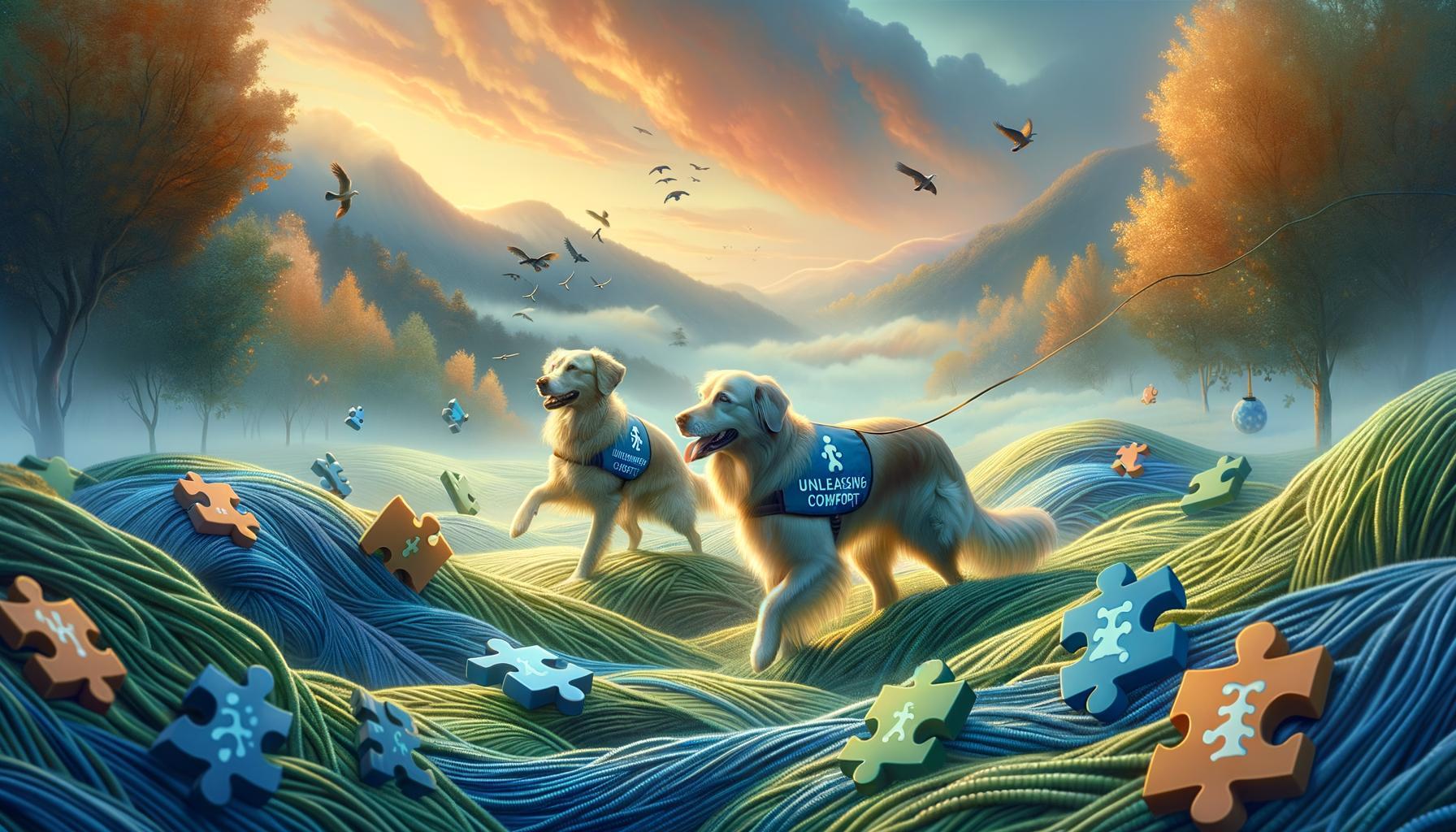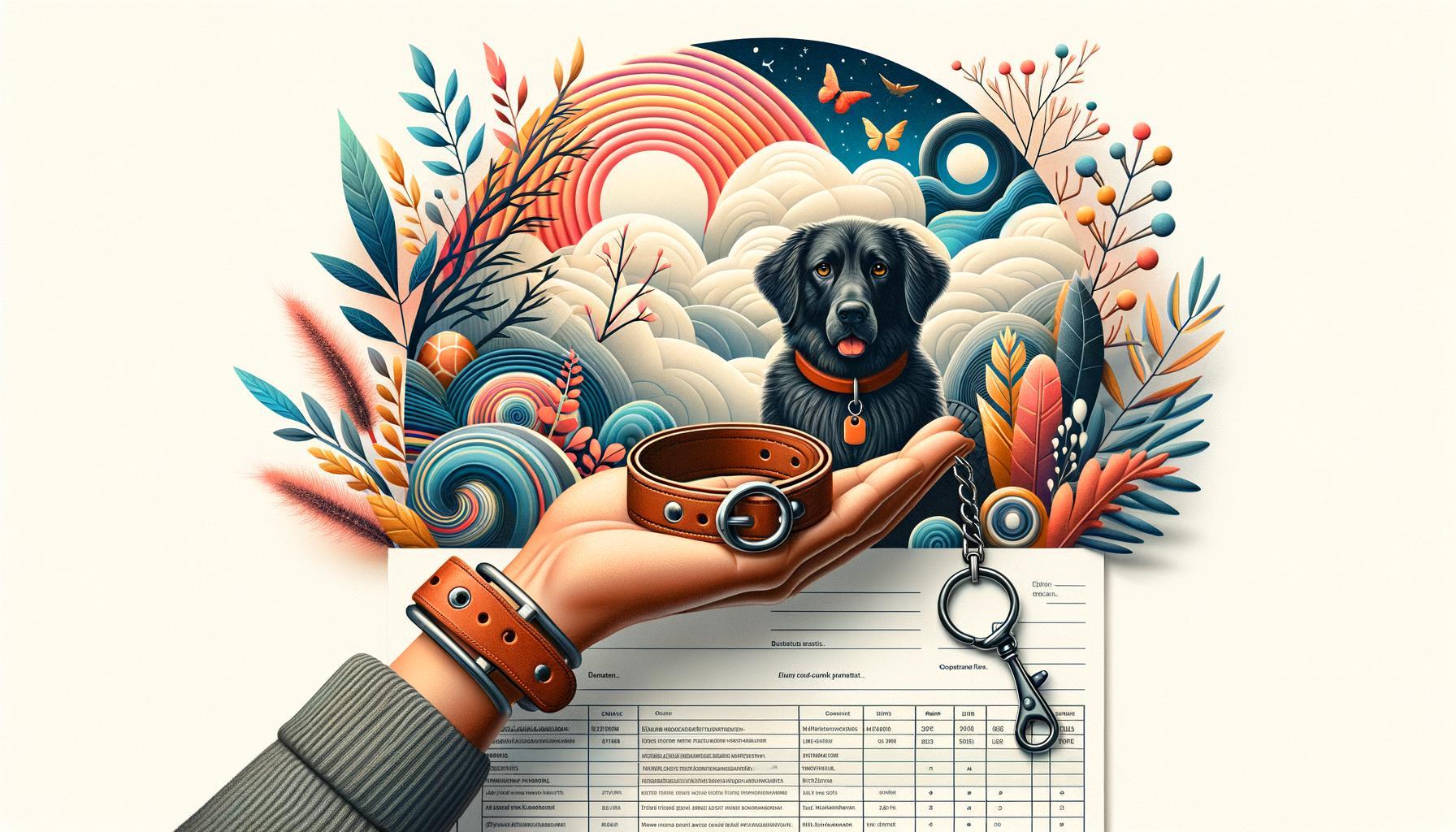In the quiet corners of countless homes, a remarkable bond is blossoming between children with autism and their devoted canine companions. This unique relationship, often woven with threads of unwavering love and steadfast loyalty, subtly yet profoundly transforms lives. In our exploration of ”Unleashing Comfort: How Dogs Aid Autism Through Support,” we delve into the nuanced ways in which these four-legged friends become more than just pets. They are silent heroes, unlocking realms of comfort, communication, and understanding, all the while bridging the gap between two worlds—one orderly and one often unpredictable. We invite you to join us on this journey, discovering the gentle paws that have a mighty impact and the paws-itive effects they bring to the lives of those navigating the spectrum.
Table of Contents
- The Healing Bond: Understanding the Connection Between Dogs and Autism
- From Anxiety to Assurance: How Canine Companions Alleviate Stress
- Enhancing Communication: The Role of Dogs in Building Social Bridges
- Tailored Training: Picking the Perfect Support Dog for Your Needs
- Creating a Safe Space: Incorporating Dogs into Daily Autism Routines
- To Conclude
The Healing Bond: Understanding the Connection Between Dogs and Autism
In the intricate dance of emotions and behaviors, dogs have emerged as gentle partners for individuals with autism. Their nonjudgmental presence offers a sanctuary of acceptance, free from the social expectations and complexities that often challenge those on the autism spectrum. Beyond companionship, support-dogs-for-autism/” title=”Paws of Comfort: Emotional Support Dogs for Autism”>dogs provide a sensory comfort that helps to ground and soothe. Imagine the tactile comfort of stroking a dog’s fur, an act that can reduce overstimulation and offer a moment of calm. These furry friends become facilitators of social interaction, breaking down the barriers of isolation with their approachable demeanor.
The practical support dogs provide translates to real-world benefits, fostering both emotional and functional growth. **Benefits of having a support dog include:**
- Increased social engagement through shared activities and outings.
- Enhanced safety, as dogs can be trained to interrupt harmful behaviors or alert caregivers.
- Improved routines and structure, playing a crucial role in daily life management.
A closer examination reveals how these gentle supporters aid in day-to-day challenges. Consider the following practical applications:
| Dog’s Role | Autism Support |
|---|---|
| Safety Monitoring | Helping prevent wandering and ensuring safe boundaries in traffic or crowded areas. |
| Emotional Support | Providing comfort during sensory overload episodes and offering a constant reassuring presence. |
| Routine Reinforcement | Encouraging participation in daily activities and reinforcing beneficial habits. |
From Anxiety to Assurance: How Canine Companions Alleviate Stress
Imagine walking through a bustling grocery store, every aisle an overwhelming maze and each sound a daunting challenge. Now, picture this with a four-legged friend by your side, guiding you through the chaos, offering a sense of calm. **Canine companions** are more than just pets; they are lifelines, easing the mental burden that often accompanies autism. These unwavering partners help stabilize emotional swings, offering a comforting presence during overstimulation. When anxiety threatens to take over, tactile stimulation from a gentle fur coat or a wet nose brings individuals back to the present, grounding them in reality. It’s not magic; it’s the phenomenal power of an empathetic touch, one that only a dog can provide.
The positive influence of a trained service dog manifests in numerous facets of life. Autistic individuals supported by dogs exhibit enhanced social skills, increased independence, and reduced feelings of isolation. Studies reveal that interaction with service dogs can lower cortisol levels, the body’s primary stress hormone, paving the way for a more serene day-to-day experience. Also noteworthy are the **routine-based benefits** a canine companion introduces:
- **Structured Daily Routine**: Consistent feeding and walking schedules anchor daily activities.
- **Improved Exercise**: Regular walks boost physical health while simultaneously reducing anxiety.
- **Enhanced Social Interactions**: Dogs act as social catalysts, facilitating easier communication and connection with others.
Consider the measurable impacts on stress management:
| Aspect | Impact |
|---|---|
| Emotional Stability | Increased |
| Anxiety Levels | Decreased |
| Social Engagement | Enhanced |
With such allies, navigating the intricate maze of life becomes infinitely more manageable, turning anxiety into assurance with each wagging tail and warm cuddle.
Enhancing Communication: The Role of Dogs in Building Social Bridges
Dogs can be remarkable companions, especially for individuals with autism, by easing social interactions that might otherwise seem daunting. They foster a sense of comfort and safety, making social bridges more accessible. Through their intuitive nature, dogs can sense discomfort and respond with grounding behavior that can help children and adults alike navigate social situations more comfortably. Observing a dog’s behavior can serve as a non-verbal cue, allowing individuals with autism to react or engage in a manner that feels natural and less pressured. Moreover, dogs often attract positive attention, acting as social catalysts for conversations and interactions that may not have happened otherwise.
- Safety and Comfort: Providing a sense of security in unpredictable situations.
- Non-verbal Communication: Facilitating interactions through body language and presence.
- Building Confidence: Allowing individuals to engage socially at their own pace.
- Positive Attention: Serving as a conversation starter and social ice-breaker.
These loyal companions are especially beneficial in therapeutic settings where structured social practice is needed. By partaking in activities like fetching a ball or participating in group walks, individuals with autism can build rapport and practice essential social skills in a more relaxed environment. The structured but friendly presence of a dog can reduce anxiety and give a sense of routine, enabling more predictable and manageable social exercises.
| Aspect | Benefit |
|---|---|
| Trust Building | Creates a secure environment for social trials |
| Routine and Predictability | Enhances comfort in social experiments |
| Non-judgmental Interaction | Offers unconditional, pressure-free companionship |
Tailored Training: Picking the Perfect Support Dog for Your Needs
When it comes to selecting an assistance dog for a child with autism, the journey is as unique as the individual. It’s not just about finding a canine companion; it’s about choosing a partner that perfectly aligns with the specific needs and lifestyle of the person they are aiding. **Breed selection** becomes crucial as different breeds bring various traits to the table. For instance, Labradors and Golden Retrievers are renowned for their friendly and calm dispositions, making them great choices for families seeking a gentle and patient companion. On the other hand, breeds like the Poodle or Bernese Mountain Dog might be preferred for their loyalty and intelligence, offering a more bespoke interaction.
Beyond breed specifics, **training focus** differentiates a good support dog from a perfect one. Some dogs excel in providing emotional support, helping manage sensory overloads and offering deep pressure therapy. Others might be trained to assist with day-to-day activities, such as fetching items or alerting a caregiver to potential safety concerns. Here are some key considerations when tailoring your search:
- Temperament: A calm, patient demeanor is ideal for reducing stress and anxiety.
- Size and Strength: Depending on the tasks the dog will perform, size can be a significant factor.
- Trainability: Highly trainable breeds can adapt better to the specific needs of their handler.
- Allergy Considerations: Hypoallergenic breeds can be crucial for families with allergy issues.
| Breed | Key Trait | Ideal For |
|---|---|---|
| Labrador | Friendly Disposition | Emotional Support |
| Poodle | Hypoallergenic | Families with Allergies |
| Golden Retriever | Calm and Patient | Reducing Stress |
Creating a Safe Space: Incorporating Dogs into Daily Autism Routines
By thoughtfully incorporating dogs into daily routines, individuals with autism can experience numerous unparalleled benefits. Dogs have a natural ability to offer **consistent companionship**, which provides a sense of structure and predictability. These attributes are crucial for those who thrive on routine and may find unexpected changes unsettling. Encouraging tasks such as **feeding the dog**, **daily walks**, and **playtime** not only establish a rhythm but also promote a sense of **responsibility** and **accomplishment**.
Furthermore, dogs can play a pivotal role in enhancing **sensory experiences** without causing overload. Their warm presence and friendly demeanor can serve as a grounding focal point during overwhelming sensory episodes. Activities that engage tactile senses, such as **petting**, **grooming**, and **cuddling**, can be particularly soothing. Additionally, dogs can act as social catalysts, providing a means to **practice communication skills** and **build confidence** in social settings. When structured properly, these interactions can significantly ease the social challenges faced by those with autism.
To Conclude
As we draw the curtain on our exploration of the transformative world where wagging tails meet the silent struggles of autism, a tapestry of hope and understanding unfolds. The bond between a person and their canine companion emerges not merely as a heartwarming tale, but as a testament to resilience and mutual growth. In the rhythmic cadence of paws and the gentle gaze of loyal eyes, we discover that comfort need not be spoken to be felt.
This journey serves as a gentle reminder that sometimes, the most profound connections come in the simplest forms—tail wags, warm snuggles, and unwavering presence. As science and stories dovetail, we inch closer to a world where autism is not defined by its challenges but enriched by its unique possibilities. And in this evolving narrative, our four-legged friends stand as steadfast pillars of support, silently guiding the way to a more inclusive and compassionate future.







Leave a Reply